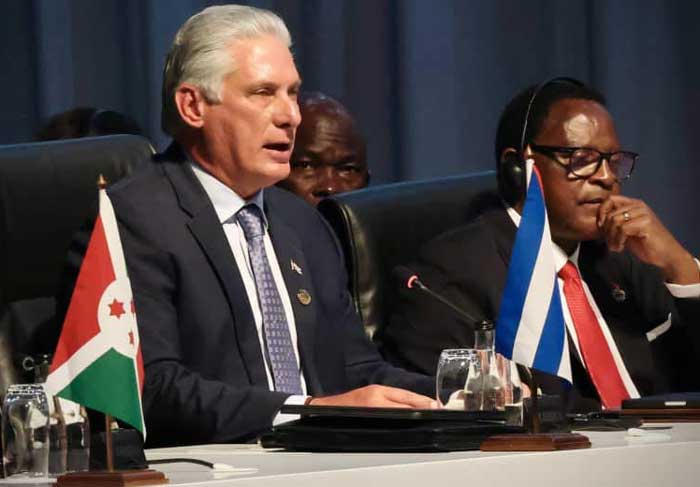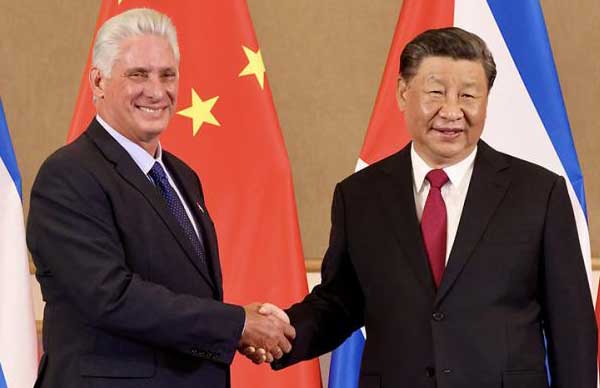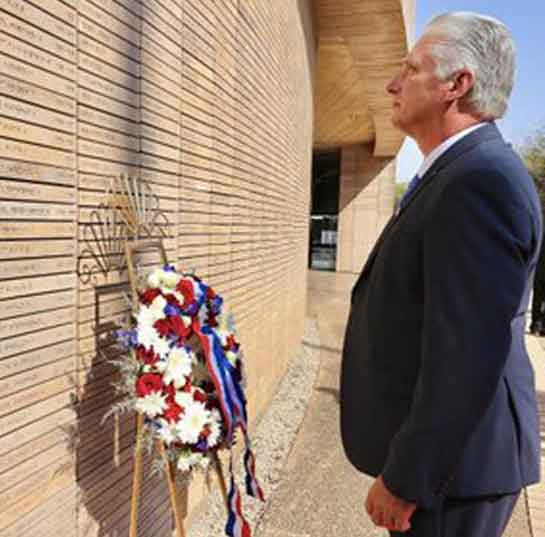
Cuban President Miguel Díaz-Canel concluded a short but fruitful visit to South Africa this week, where he participated in the 15th BRICS Summit.
Pretoria.- During his stay in South Africa, Díaz-Canel, as a current president of the Group of 77 (G-77) plus China, participated in the BRICS Plus Dialogue segment of the Summit, which, along with the BRICS-Africa Outreach, involved nations from the Global South, the African continent, and international organizations.
This time, the Cuban president recalled that the transformation of the current international financial architecture, which he described as deeply unjust, anachronistic, and dysfunctional, is a historic demand of both the G-77 and the BRICS.
Díaz-Canel emphasized that the G-77 and the BRICS (Brazil, Russia, India, China, and South Africa) have the responsibility and the opportunity to take action for a change in the current unjust world order. It is not an option, is the only alternative.

During the event, the Cuban head of State met with his Chinese counterpart, Xi Jinping, who was attending the Summit, in which the BRICS bloc agreed to admit Argentina, Egypt, Ethiopia, Iran, Saudi Arabia, and the United Arab Emirates. At the meeting, Díaz-Canel reiterated his invitation to Xi to visit Cuba. The Cuban people admire him, he said.
 Earlier, the Cuban president participated in a massive act of solidarity at Freedom Park in Pretoria, where he paid tribute to 2,287 Cubans who died for freedom in African countries and also to the historic leader of the Cuban Revolution, Fidel Castro, by laying a wreath.
Earlier, the Cuban president participated in a massive act of solidarity at Freedom Park in Pretoria, where he paid tribute to 2,287 Cubans who died for freedom in African countries and also to the historic leader of the Cuban Revolution, Fidel Castro, by laying a wreath.
Representatives of the African National Congress (ANC), the Congress of the South African Trade Unions (COSATU), the South African Communist Party (SACP), and the Friends of Cuba Society (FOCUS), along with others, expressed their strong support to the Cuban Revolution.
Solly Mapaila, Secretary General of the South African Communist Party (SACP); Fikile Mbalula, Secretary-General of the African National Congress (ANC), and COSATU and FOCUS leaders unanimously expressed their rejection of Cuba’s inclusion by the United States in the list of states sponsor of terrorism.
They also called for lifting the US blockade against Cuba and the return of the territory illegally occupied by the US naval base in Guantanamo.
After the event, Díaz-Canel called “in the name of those fallen for the freedom and sovereignty of Africa, South Africa, and Cuba, for peace and harmony among nations and people” to fight “so that friendship becomes indestructible and future generations of South Africans and Cubans can be proud of the bonds we have left to them. (PL)





